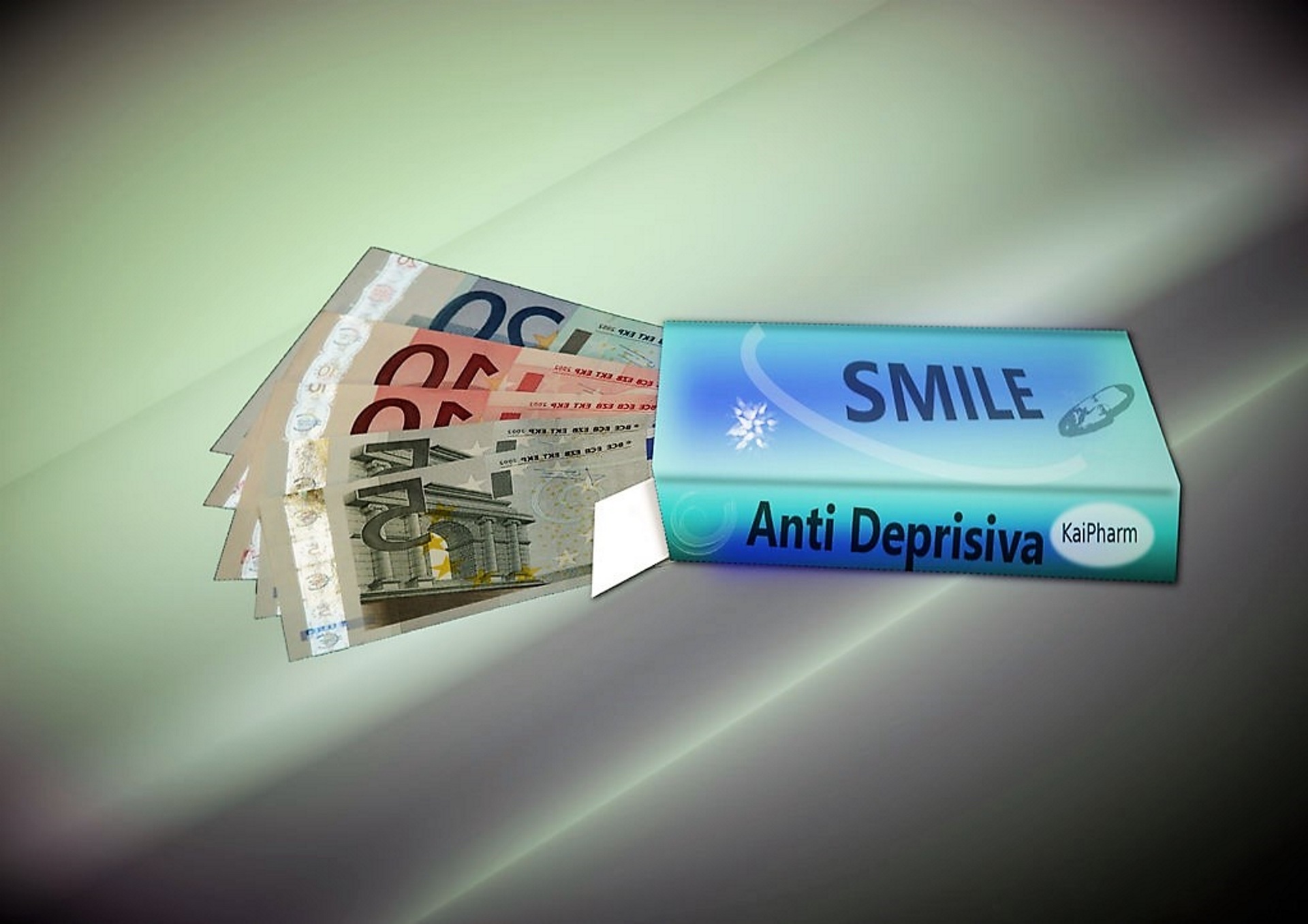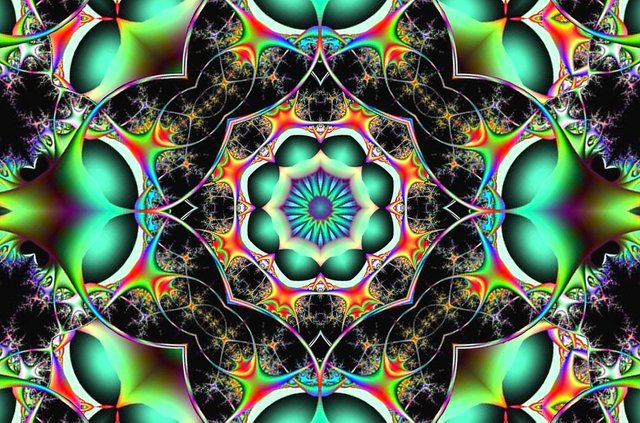The Problem with Antidepressants: False Incentives and perpetual suffering
Depression
It's becoming a very common life event. With a prevalence rate of 20% that means every 5th friend you have is bound to have it sooner or later. I know at least two friends who got it and were prescribed antidepressants. Talking about antidepressants with a friend whose under treatment for depression is a walk on very thin ice. People get very sensitive of treatment criticism and maybe they are right to do so, after all who are you to know their problems better than they do. The issue here is not to demonize anybody by blaming them for how they choose to deal with their problems.

But why is depression becoming so prevalent? This in itself not very so hard to answer. Depression is not at all prevalent in the animal kingdom. This is not to say that animals can’t become depressed, rats immediatley show signs of depression within one hour after putting them in a cage. This actually shows that depression may have an evolutionarily useful purpose! It causes us to avoid being isolated and forces us to build social communities. The mere presence of others is known to have healing benefit, a phenomenon known as social buffering [1]. Depression has even more surprising benefits! A theory known as depressive realism makes the bold claim, that what we call normal is in fact a delusional optimism. This theory brilliantly turns the table and claims that healthy people deludethemselves into thinking that everything is just fine and dandy. Interestingly, there is some evidence in favor of this theory. Healthy individuals exhibit a slight positive bias towards healthy faces in emotion discrimination tasks. They are more prone to view a neutral face as a happy face, whereas mildly depressed people show superior performance in these kinds of discrimination tasks. Severely depressed people however, display a strong negative bias towards others viewing neutral faces as negative.
Some academics view depression as a sort of evolutionary adaptation to disengage from unrealistic goals. Think about it. Everybody wants to actualize their goals in some way or another. We pool a lot of cognitive resources into doing this. So much that we lose perspective of when these goals have ceased to be realistic. When goals have become unattainable, what we need is not the reassurance that everything is just fine, but a strong emotional reaction to help ourselves disengage from such delusions. Nowadays, everybody seems to be expected to be happy no matter what.
I imagine instead a society where people learn to love their depression. As paradoxical as this may seem, this is a philosophy that many existentialist hold dear. Nietzsche devoted his entire life to form a philosophy that sought meaning in suffering. This may be taken to an extreme, but the point I’m trying to make is that depression has value. It is not pure happiness that gives life meaning, but rather the evaluation of the good and the bad in its entirety. I reckommend reading Irvin Yalom for more on this topic!
Antidepressants
My problem with antidepressants is that they pretty much stand against everything I just wrote. Most antidepressants are selective serotonin reuptake inhibitors (SSRIs), which means they stabilize the amount of serotonin in some brain region or other. The widespread use of SSRIs has lead many people to trivialize depression as ‘ow, you just don’t have enough serotonin’. This attitude lacks any reflection of why you are feeling depressed, as it isn’t clear whether low serotonin levels are a cause or the effect. Common sense would dictate that they are in fact an effect. Why? If low seretonin levels caused your depression, shouldn’t SSRIs immedietley improve your depression? It should but it doesn’t! SSRIs take 2-4 weeks to exhibit any effect and about 50% of the patients switch to a different type of SSRI before reporting improvements.

How on earth could they have gotten so successful? Irving Kirsch(2014) [2], a researcher of the placebo effect offers a shocking answer. Science finds itself in a file-drawer problem, which means that only the positive results are published while the negative results remain in the file drawer. If 95% scientists don’t find any effects, that just means the 5% remaining will publish them instead. To combat this problem Dr. Irving Kirsch requested pharmaceutical data from the US government registry. Law requires psychopharmaceutic companies to submit all their results, even if they are not published. The analysis of the full data showed shocking results: the effect size was barely higher than that of the placebo effect. While the placebo effect is celebrated by alternative medicine, it is a nasty bugger for the pharmaceutic industry. Typically they want to rule out the placebo effect, by giving subjects sugar pills. What is well known however, that in placebo-controlled trials where subjects notice active drug-effects they no longer believe that it’s a sugar pill, so it no longer controls for the placebo effect. To combat this, certain studies administer active placebos, which are drugs that do cause physiologic changes (i.e. liver-medication) just non-related to effects of the antidepressant. What Irving Kirsch found was that compared to active placebo there were no significant differences in antidepressant effects.
So why are antidepressants prescribed?
The reason why SSRI are prescribed so widely seems to be because the therapeutic goals prioritize the flattening of affect in order to endure the causes of one’s depression. Reminiscent of Aldous Huxley’s brave new world, these therapeutic goals encourage people to suppress their mental problems rather than confronting them and grow as individuals. Studies show that classic SSRI decrease responsiveness to both positive and negative stimuli [3]

Psychedelics such as LSD on the other hand seem to do quite the opposite: they increase reactivity to both positive and negative stimuli. Interestingly, the discovery of psychedelics lead to the discovery of serotonin in the first place! The two are quite similar molecules. What psychedelics can offer us now is a new approach to treating mental disorders! Lots of therapists postulate that psychedelics catalyze the process of confronting your mental problems. The therapeutic goal here is to overcome your problems by facing them full on. This is promising but also dangerous, because you have to make sure that the patient is ready to face his or her problems. The second issue is the profound effects on the brains Default Mode Network. This network runs the brains central maintenance activity, presumably for functions such as autobiographic memory and memory consolidation. In depression this network seems to be overactive, which corresponds to depressed patients constantly ruminating over their problems and negative self-image. Hence the expressions: one cannot escape their own thought.
Psychedelics tend to decrease Default Mode Network activity, which is why they may help people escape their own thoughts. Ketamine is thought to be effective for the very same reason, its dissociative effects create relief from one’s own ego.
Saying goodbye to cures
If I am trying to make a point, it is this: Let’s stop talking about curing mental health problems and start facing them. This may sound radical, but is it really? I’m not saying we shouldn’t treat mental health problems, but are we setting too high expectations by telling people that active placebos will cure their problems? Are psychedelics better? Maybe. But not if people take it for the same reason as SSRIs!
Wanderer above the Sea of Fog by Caspar David Friedrich
The interesting thing with psychedelics is that the positive clinical effects may only be present if one actively strive towards positive outcomes. Our current pharmaceutical standards aren't particularly compatible with such notions because we generally expect our medicines to work regardless of whether people want it or not. Moreover, since the discovery of psychedelics happened so long ago, pharmaceutical companies cannot patent them as medicine. This leaves no incentives to research them. SSRIs on the other hand have to be taken constantly. Patients never learn to confront their mental problems so they can keep on suppressing their problems with medication. This type of sustained medication creates a lucrative business for the psychopharmaceutical industry. Why should one assume that they are incentivized to cure these problems immediatley? But I think the more important question is, can mental problems be cured at all? To what extent is a mental 'problem' a part of ones very personality? Is there a necessary amount of suffering? These are all issues on account of which I wouldn't proclaim mental cures in the same sense I would call something a cure for cancer. But there are people who are resistant to all other forms of treatment and for these individuals I think psychedelics would bring the greatest benefit. Psychedelics are potentiators of potential, they are not cures to anything and they don’t turn us into superhumans. The term "psychedelic" is derived from the Ancient Greek words psychē ("soul") and dēloun ("to make visible, to reveal"), translating to "soul-revealing". This is what makes psychedelics a unique substance. It’s not about passively medicating yourself, it’s about what you do before, during and after the experience!
Sources:
[1]: Kikusui, T., Winslow, J. T., & Mori, Y. (2006). Social buffering: relief from stress and anxiety. Philosophical Transactions of the Royal Society B: Biological Sciences, 361(1476), 2215–2228. http://doi.org/10.1098/rstb.2006.1941
[2]: Kirsch, I. (2014). Antidepressants and the Placebo Effect. Zeitschrift Fur Psychologie, 222(3), 128–134. http://doi.org/10.1027/2151-2604/a000176
[3]: Carhart-Harris, R. L., & Nutt, D. J. (2017). Serotonin and brain function: a tale of two receptors. Journal of Psychopharmacology, 31(9), 1091-1120.
Images were taken from pixabay and Wikimedia commons.
A beautifully succinct way of posing questions that medical professionals and legislators should be interested in answering if they truly wish to provide the most quality care/introduce meaningful legislation for their communities.
The other side of the equation is a community that has access to the most up-to-date research for making their own decisions. By sharing this information with as wide of an audience as possible on the blockchain, we support our human community's progress. Great post, I'm not much for fiction but Yalom's piece looks intriguing given the framing you gave it, thanks for the lead!
Yes, the reason I joined is because I'm intriguided by the blockchain philosophy of creating community incentives. What I hope is that people will start creating systems that propagate such incentives, maybe to the point that science itself could become a community venture. As I was trying to highlight the problem, there are simply no serious incentives behind giving money for psychedelic research at the moment. Big Pharma isn't interested and the public mostly doesn't care. This is not to say there aren't potential opportunities to make money though. MAPS wants to make patented mdma-assisted therapies licenses that would belong to the therapists themselves. There are already investment opportunities for therapy centers. If applied properly, I think psychedelics would also save lots of money on mental health costs. It is perplexing to me why people often don't want to take psychedelics seriously ...
I, too, have a lot enthusiasm for the opportunity the STEEM blockchain community provides for giving monetary support to research and creative projects that have historically had difficult times securing funding and support. Without a doubt, you are correct that much cost could be avoided in healthcare with the option for a longer lasting, more natural treatment.
That therapy license from MAPS sounds very promising, certainly providing informed guidance to users is responsible and highly recommended. I am so glad to know that they received a large crypto donation from The Pineapple Fund; I hope that public outreach is a priority, as the consumers of the pharmacological treatments must be empowered to require more information about these options for their health and quality of life.
Gotta love that pineapple fund <3
Social acceptability is a big part in treatment availability.
Excellent. Thank you for providing the community with this important topic.
From what I think one wouldn' want to become addicted to psychedelics when certain requirements are followed. Like you said when it is taken for the cause of understanding one's depression. The look into one's own realm of psyche or "soul" takes first courage and secondly the will to change life for it doesn't become such a burden for the self and for others. Which includes the view you offered: to not see a depression of something to get rid of but to take the winds force in order to sail the sea. To integrate depression rather exclude it.
Also I think that the relationship between the treating and the receiving person must be strong and good. I have to trust the one who treats me and accompanies me within the psychic experience.
An ideal figure to picture is that of a shaman. We all know the movies where a careful shaman gives all his knowledge, wisdom and body to help his patient. He doesn't have a schedule, he devotes his energy to the patient and has an unselfish goal/intention.
This symbolic role model speaks of a human need we all have.
Yes, that raises the question by whom and how "health" is defined. I am unable to define health when I reject sickness and make it look evil.
I don't think so. There is no cure once and for all anyway. People are looking inwards and outwards. They relate their depressions to their own biology and personality as well as to life circumstances and events and the social groups.
My life is like riding on the ocean. Sometimes its calm and quiet sometimes its rough and dangerous. I can totally rely on the fact that changes will come and I have to navigate through them. I wouldn't want that without my fish swarm where I can rest and take some time out.
Hello bud.
You article is great!
Please add the sources of the pictures. And try to use images from copyright free sites, like pixabay for example.
Putting the sources of the pictures is important in order to receive proper curation :D.
Cheers! And remember feel free to contact me on discord or steemit.chat
I did use pixabay actually, but I forgot to mention the sources.
Yeah, feel free to edit the post so you can add them bro. Trust me this will help you receive bigger support from curators.
Thanks for the tip!
Excellent article.
I have said for a long time that depression is usually a sign that something needs to change in one's life. Medicating people with antidepressants allows people to muddle through life without having the incentive to make hard choices that would benefit them in the long run.
Thanks!
Great piece of work, mate!
I have struggled for two decades from these ailments and sadly, at least for me, psychistry revealed itself to be at its infancy. What worked for me were responsible use of psychedelics combined with talk therapy...hell, at the same time even! I would go there while on microdose and just have my regular session with my therapist, all resulting in sessions that yielded many orders of magnitude of results thanks to the enhanced introspection and thought connectivity.
Psychotherapy, psychedelics gave me momentum to adopt all the other things that make life much easier to live; exercising, having a proper diet, and cultivating my intellect and passions :)
Insta-followed!
Thanks!